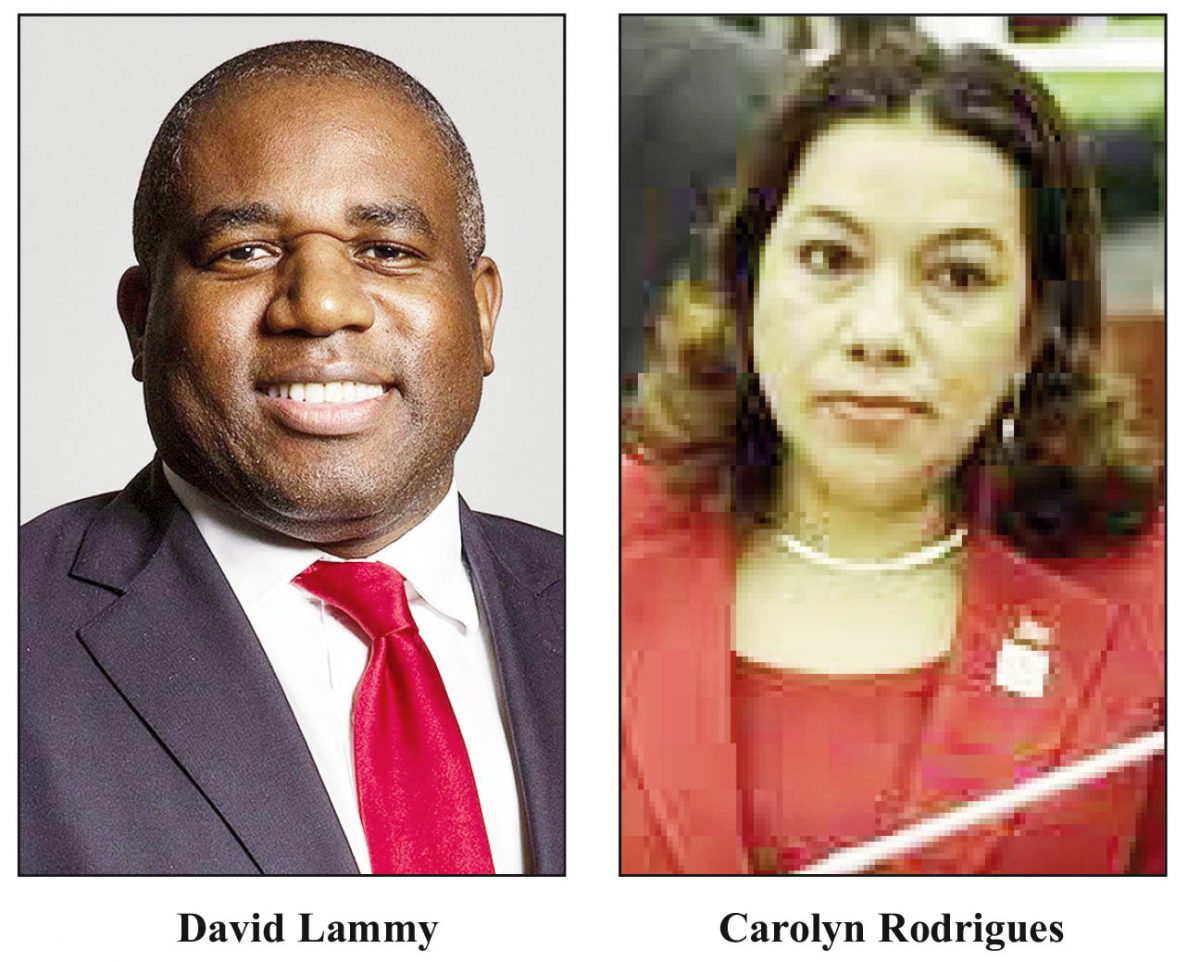Policy Forum Guyana (PFG), a local NGO, has expressed disquiet with two of the appointees to the Board of Directors of the Natural Resource Fund (NRF) and is questioning the practicality of the decision.
In a release on Saturday, PFG welcomed the “long-delayed” appointment of the Board of Directors of the Natural Resources Fund, pointing out that the continued absence of the board has “hampered formulation of the fundamental principles and practices which should guide the work of the Fund.” With the board now in place, the NGO is hoping that it will usher in “coherent, transparent and systemic” decision-making in the oil & gas sector.
However, the release noted with veiled criticism, that the decision to man the board as well as the manner in which it was announced has sustained ‘where did this come from?’ moments. This, it contends, is characteristic of much of the decision-making in the oil & gas sector. It added, “This inexplicable approach impedes acceptance of decisions by a broad segment of the Guyanese population that ought to be routine.”
A case in point, the release stated, would be the inclusion of two names that will “dominate discussion” and detract from the work of the Board. It expressed the view that Guyanese will be taken aback, “justifiably,” that no explanation has been provided for inclusion of UK citizen David Lammy MP and the New York-based Guyanese diplomat Carolyn Rodrigues, currently Guyana’s representative to the United Nations.
PFG in advancing its criticism, posits that it does not view non-residence in Guyana as a disqualification. Rather, it sees non-resident appointments as “justified” if they bring outstanding competence not available locally, “otherwise they simply expose the hollowness of the ‘local content’ mantra.” And as far as the two nominees are concerned, the residence issue is of less concern than the nature of their current occupations.
The release noted that Lammy is the Shadow Foreign Secretary in the UK Parliament who by virtue of his oath of office is committed to be loyal to the Queen and her successors. It reminded that the extractive industries of Guyana such as mining, fisheries, forestry and petroleum, “have historically served the economic development of the industrialised world – the UK in particular.” Consequently, PFG asks “how Mr. Lammy MP intends to avoid a conflict of interest between sustaining this flow of benefits to the UK while also managing the NRF to ensure “the present and future benefit of the people” of Guyana (opening statement of the Act). A question it views as a serious matter.
Moving on to Rodrigues, Policy Forum noted that her substantive job at the United Nations is to promote the best interests of Guyana which, while “ostensibly harmonizing well with ‘the present and future benefit of the people’ of Guyana, is also problematic.” As far as the PFG is concerned, the reality of Guyana’s foreign policy nowadays in relation to the extractive sector is “skewed by its focus on ‘prosperity’, prioritizing relations with the likes of the UAE, Qatar, and other oil-rich states with disreputable human right records and a wholly irresponsible approach to squandering oil wealth.”
The NGO is of the opinion that her role on the NRF Board should encourage relations with countries whose experience with extractive wealth is more in line with meeting Guyana’s needs which are described as “robust democracy, independence, and transparency in the workings of the NRF.”
And according to its assessment, where Lammy may be challenged by relations with old “exploiters”, Rodrigues’ challenge will be with “new ones.”
The release also examined the criteria of “the wide experience and ability in legal, financial, administrative or business matters” required of members of the Board of Directors (NRF 5.1). It did acknowledge that Lammy and Rodrigues would have some familiarity with all such matters in the course of their political and diplomatic careers, but however, noted that it takes a particularly “narrow” reading of the requirement to say they meet its full meaning.
The fact that provision is “marginally” met, the PFG said, is particularly noticeable in an Act which prioritises requirements for other positions in the NRF in elaborate detail. Further, since the essence of the Board’s role is to oversee investment decision-makers, this shortcoming is not a trivial matter.
It goes on to point out that the engine-room of the NRF Act comprises an Investment Committee which advises the Minister; an investment advisor, and investment analyst, who advise the Board; an investment services advisory company to assist the board; private fund managers hired by the Governor of the Bank of Guyana; and ‘Custodians’ hired by the Bank of Guyana to oversight the fund managers. “The complexity and layers of authority set out in the Act seems tailor-made for mischief, challenging the capacities of those charged with oversight of the Fund even if resident 24/7 in Guyana”, it charged.
The NGO expressed puzzlement at the government’s failure to ensure broad-based support for its selection by providing Guyanese with an explanation, noting that such disinterest reinforces the misplaced sense of “entitlement” which frequently characterises official decision-making.
The other members of the NRF are Major-General (Rtd) Joe Singh (Chairman), Ramesh Dookhoo and Dunstan Barrow.






